US vetoes UNSC resolution rejecting Trump's al-Quds decision
The United States has been further isolated after it vetoed a UN Security Council’s resolution calling for the annulment of US President Donald Trump’s controversial bid to recognize Jerusalem al-Quds as Israel’s capital.
Fourteen members of the 15-member council voted on Monday in favor of the Egyptian-drafted resolution, which did not specifically name the US or Trump but expressed “deep regret at recent decisions concerning the status of Jerusalem” al-Quds, while US Ambassador Nikki Haley wielded Washington’s veto against the call.
“What we witnessed here in the Security Council is an insult. It won’t be forgotten. We do it [the veto] with no joy, but we do it with no reluctance,” said Haley after casting the US veto.
“The fact that this veto is being done in defense of American sovereignty and in defense of America’s role in the Middle East peace process is not a source of embarrassment for us; it should be an embarrassment to the remainder of the Security Council,” She further said after the vote.
Washington’s key allies - the UK, Italy, France, Ukraine and Japan - were all among the 14 countries that voted in favor of the measure, which asserted that “any decisions and actions, which purport to have altered the character, status or demographic composition of the Holy City of Jerusalem [al-Quds] have no legal effect, are null and void and must be rescinded in compliance with relevant resolutions of the Security Council.”
Palestinians slam US veto of UN resolution on Jerusalem al-Quds
In a statement released shortly after the UNSC vote, the Palestinian government strongly denounced as “unacceptable” the American veto, saying the highly provocative move “threatens the stability of the international community because it disrespects it.”
Speaking to reporters, Nabil Abu Rudeina, a spokesman for Palestinian President Mahmoud Abbas, said the US veto of the UN resolution was "unacceptable and threatens the stability of the international community, because it disrespects it."
Abu Rudeina said the support for the resolution, which included US allies France, Italy and Japan, "showed the (American) isolation,” adding, “The international community must work now to protect the Palestinian people."
On December 6, Trump announced his decision to recognize Jerusalem al-Quds as Israel’s capital and relocate the US embassy in occupied lands from Tel Aviv to Jerusalem al-Quds.
The dramatic shift in Washington’s policy vis-à-vis the city triggered demonstrations in the occupied Palestinian territories, Iran, Turkey, Egypt, Jordan, Tunisia, Algeria, Iraq, Morocco and other Muslim countries.
On December 10, violent clashes erupted outside the US embassy in the Lebanese capital Beirut during a protest against the US decision. Demonstrators burnt tires as well as the US and Israeli flags as they pushed to break through a barbed wire erected by security forces around the embassy complex. Security forces used tear gas and water cannon to disperse the angry protesters.
Jerusalem al-Quds remains at the core of the Israeli-Palestinian conflict, with Palestinians hoping that the eastern part of the city would eventually serve as the capital of a future independent Palestinian state.
VIDEO | Former FBI agent criticizes US Congress for 'outright corruption'
IRGC chief urges Muslim countries to cut aid routes to Israel
'New chapter in cooperation': Iran, Venezuela sign new MoUs
Jordan sentences former lawmaker for supporting Palestinian resistance
Basij volunteer forces hold massive drills in southwestern Iran
Israeli war criminals 'not welcome', US city says after ICC ruling
US vetoing of Gaza ceasefire resolution ‘disgraceful’: Iran’s UN envoy
VIDEO | IAEA adopts anti-Iran resolution tabled by E3


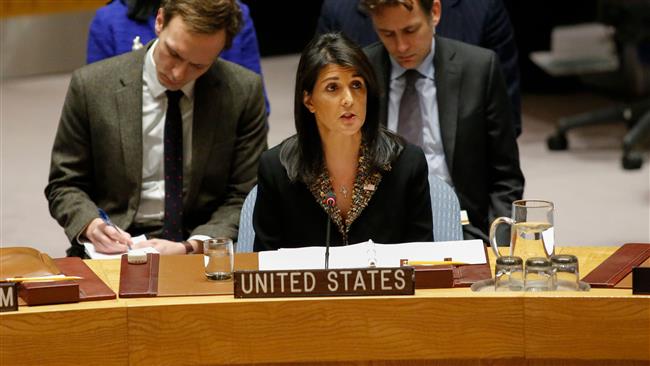

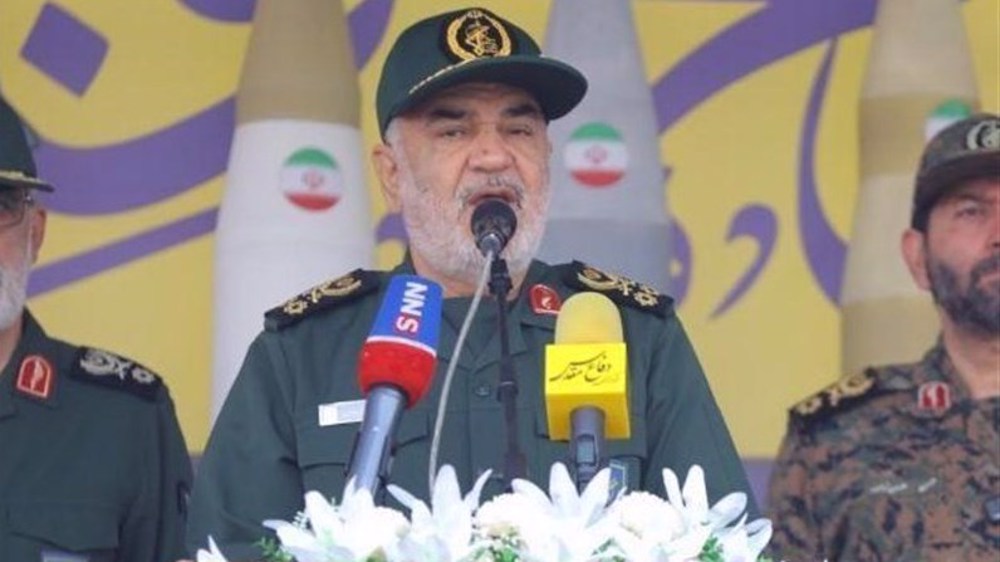
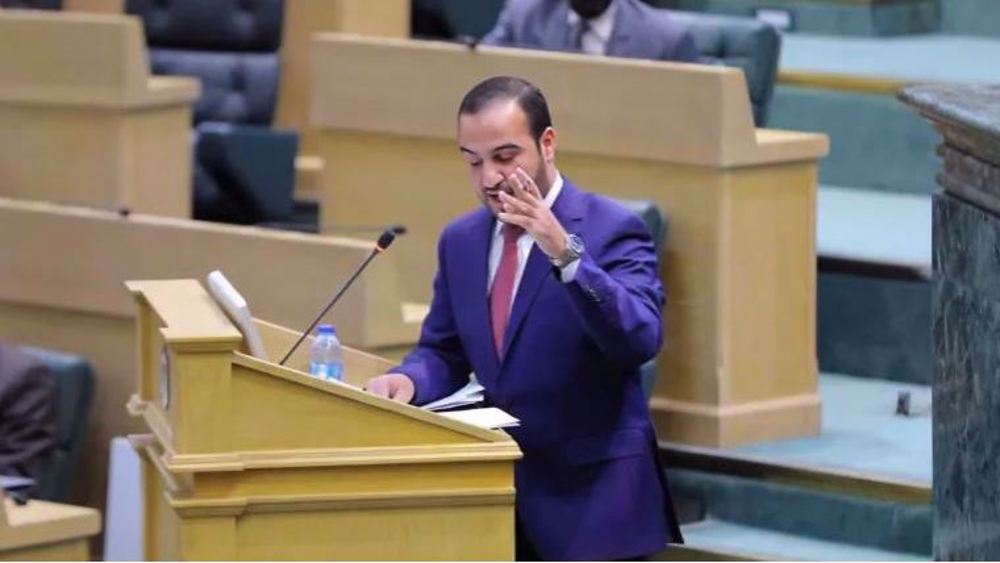
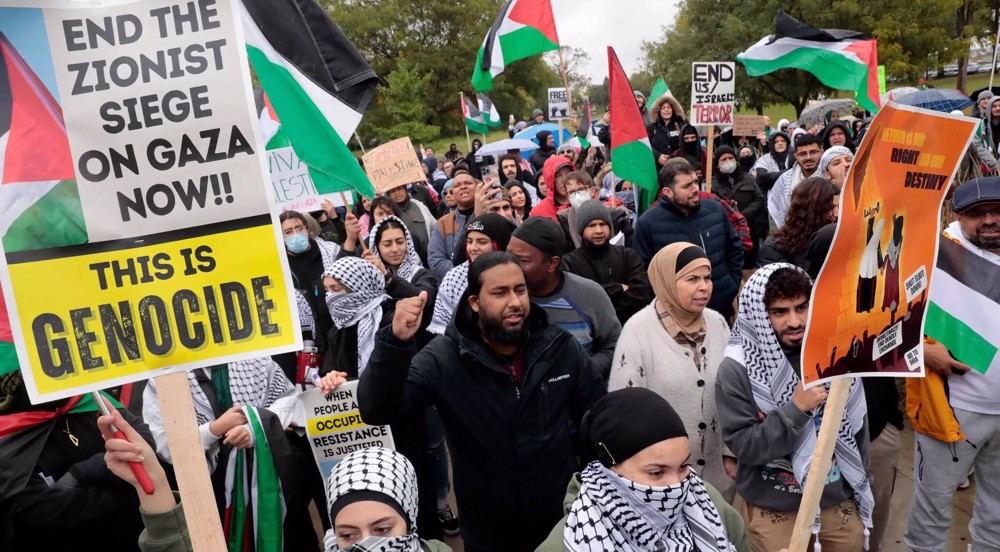



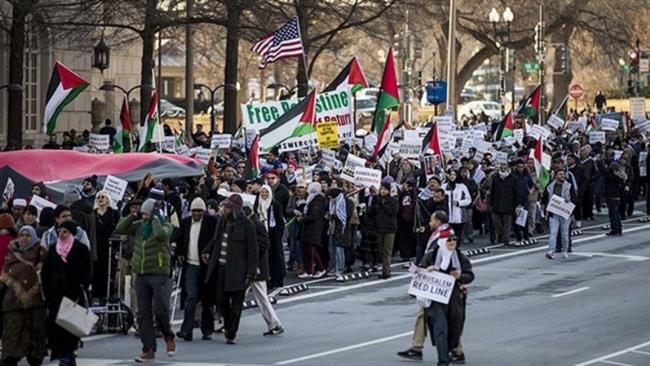
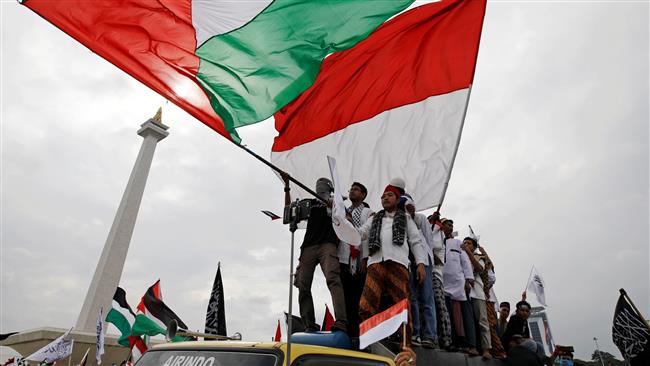
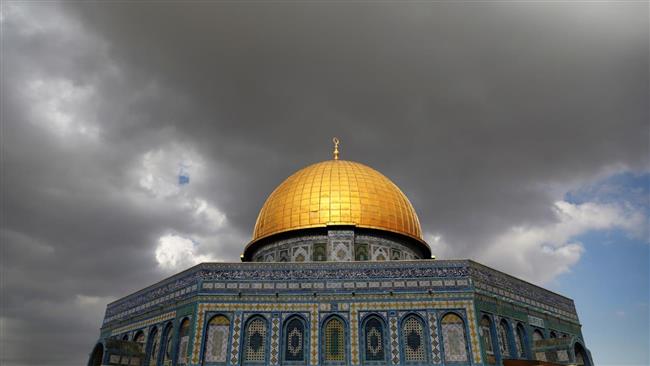
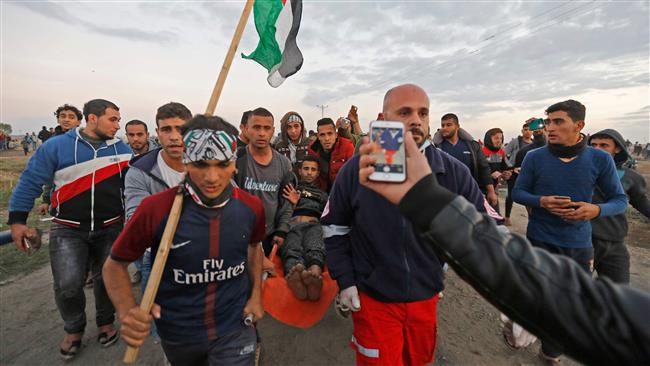
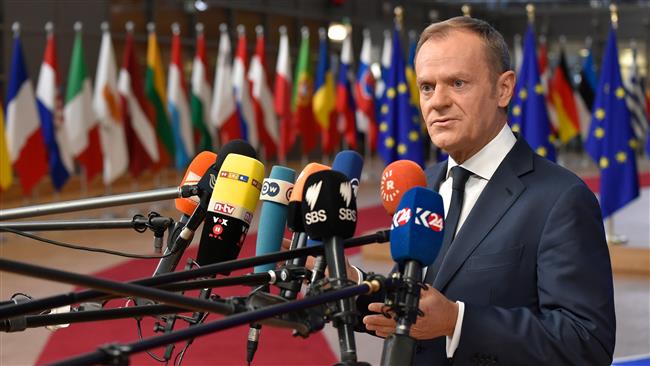

 This makes it easy to access the Press TV website
This makes it easy to access the Press TV website